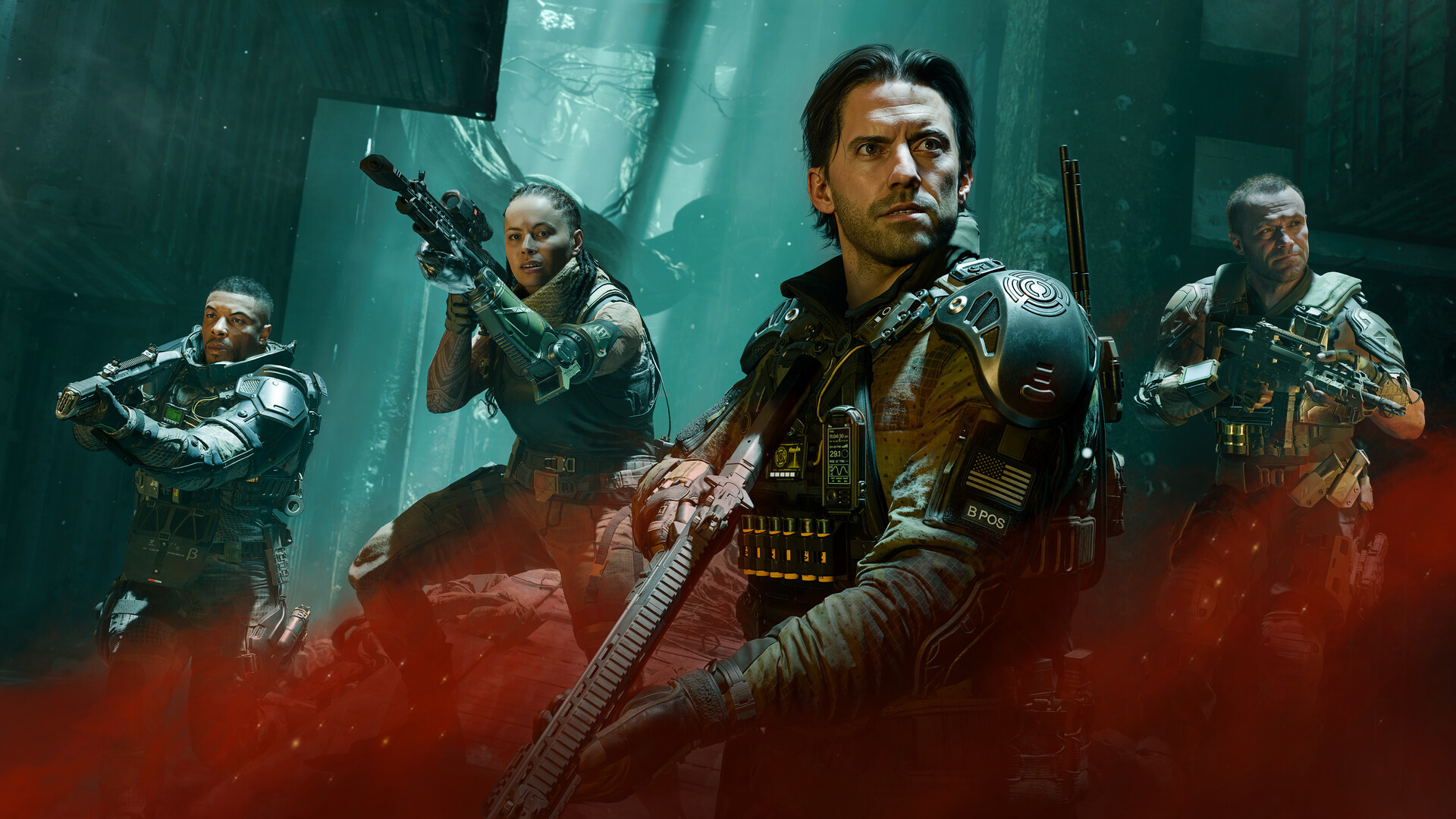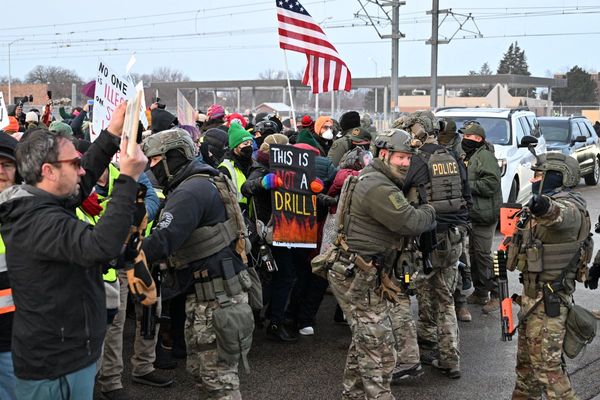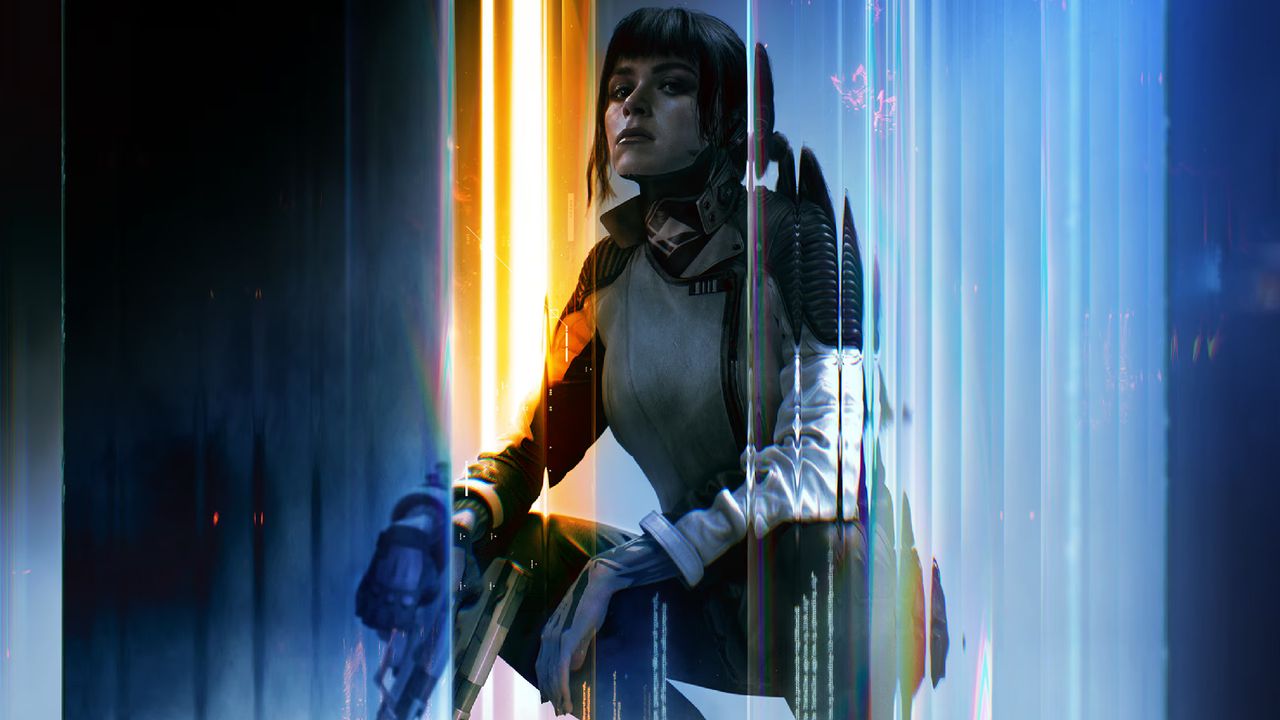
As someone who holds Black Ops 2 in the highest regard amongst the Call of Duty pantheon, Black Ops 7's return to the near future, this time in 2035, is an exciting prospect after a blast from the past with last year's Black Ops 6. Right from the first mission, gunfights feel as slick as ever as my co-op squad mates and I immediately disregard stealth and go loud.
But then, after a mishap with a mind-altering bioweapon, giant machetes suddenly start raining from the sky and I'm locked in an honest-to-goodness, health bar-chipping boss fight with David Mason's old nemesis Raul Menendez and his nightmarish minions – Black Ops has always been weird, but am I even playing a Call of Duty game anymore?
Call of Duty: Black Ops 7 is unquestionably ambitious, both in its commitment to a campaign experience that's radically unique from its predecessors and in its attempt to jam so much in across the campaign, multiplayer, Zombies, and PvE-only extraction mode Endgame. For the most part, it's a polished experience that draws on Black Ops 6's bones while infusing it with the DNA of Black Ops 2, making for a Call of Duty game that isn't afraid to experiment and get truly wild. But, in aiming at so many targets, Black Ops 7 doesn't always hit its mark.
Guilded age

Release date: November 14, 2025
Platform(s): PC, PS5, PS4, Xbox Series X/S, Xbox One
Developer: Treyarch, Raven Software
Publisher: Activision
Set 10 years after 2012's Black Ops 2, Call of Duty: Black Ops 7 sees David 'Section' Mason being called back from retirement because (in true Star Wars: The Rise of Skywalker fashion) somehow, Raul Menendez returned. The arms-dealer-turned-populist-revolutionary-and-social-media-legend is back from the dead with a threatening video message for a world left vulnerable by the anarchy caused by his Cordis Die group in 2025 and beyond. But the Guild – a tech giant built from the bones of the criminal organization of the same name that featured in Black Ops 6 – is ready to step in with the promise of peace.
It's an interesting premise that nicely builds on the fallout from Black Ops 2, even if it does now force a canon set of choices for that game, but it's unfortunately backed up by some flimsy and rushed storytelling. The intro cutscenes just about get the ball rolling with the setting but as Black Ops 6's now elderly Troy Marshall explains to Mason that the Guild is running a psy-op at its Mediterranean Avalon HQ that might (somehow) be linked to Menendez, you're suddenly thrust into the action.
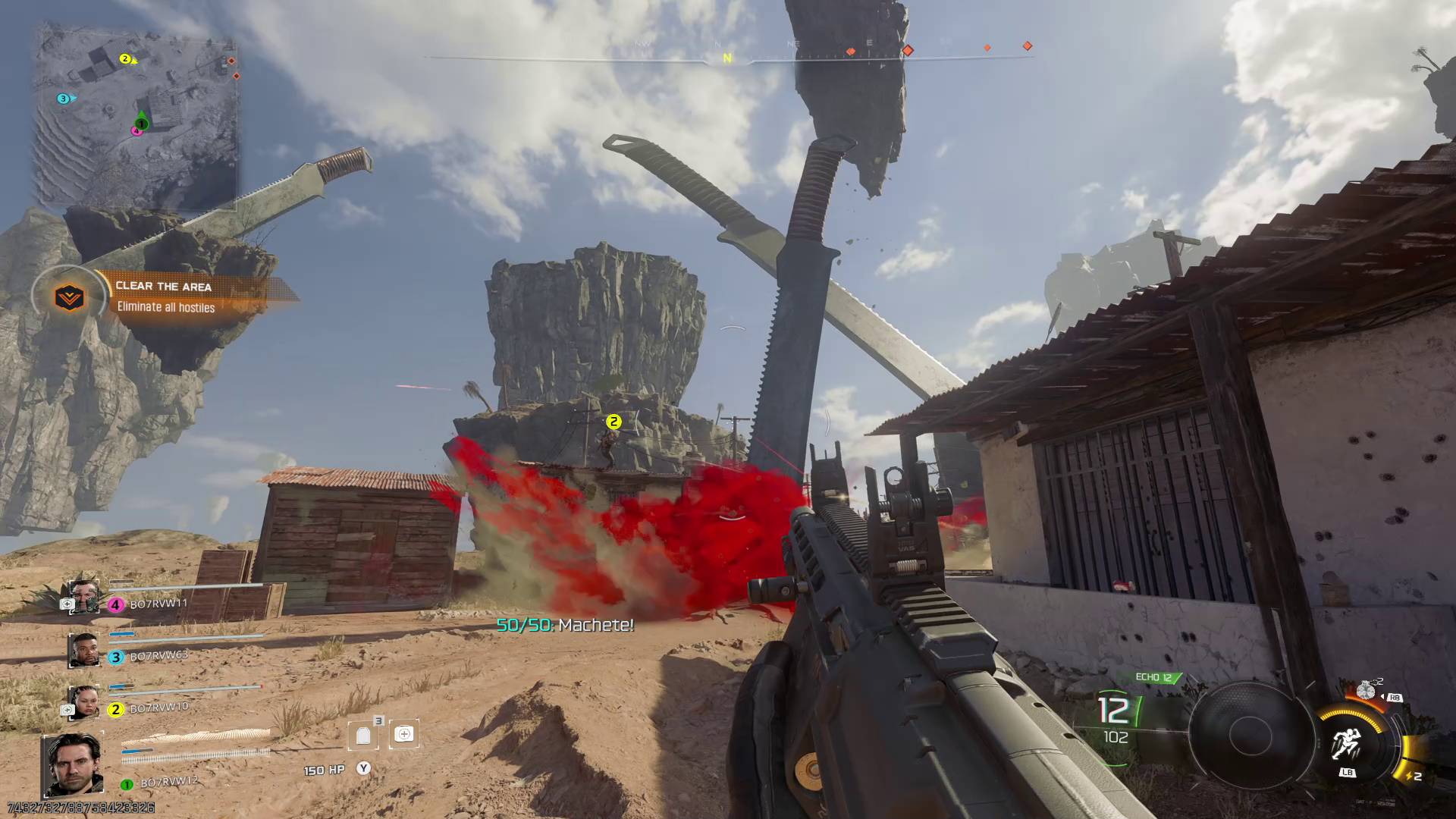
A mere 20 minutes later, Mason (Milo Ventimiglia) and his team of mentally scarred veterans, known as Spectre One, have a run-in with Emma Kagan (Kiernan Shipka), the Guild's CEO who wastes no time letting them know how moustache-twirlingly evil she and her company are. Kagan was very clearly going to be the true villain in this story, but I didn't think the façade would drop so quickly, leaving her and the Guild as nothing more than classic world domination types.
I expected there to be at least a bit of fruitless poking around, making it seem like the Guild's mission was genuine, but any sense of mystery is practically non-existent. And any hope of salvaging something interesting from this plot thread are later scuppered by a couple of weightless twists delivered through cutscenes and mission dialogue, keeping the story simple and, at times, nonsensical, with barely any noteworthy stakes. For what was billed as a mind-bending campaign, my mind felt quite unbent by the end.
Tripping over
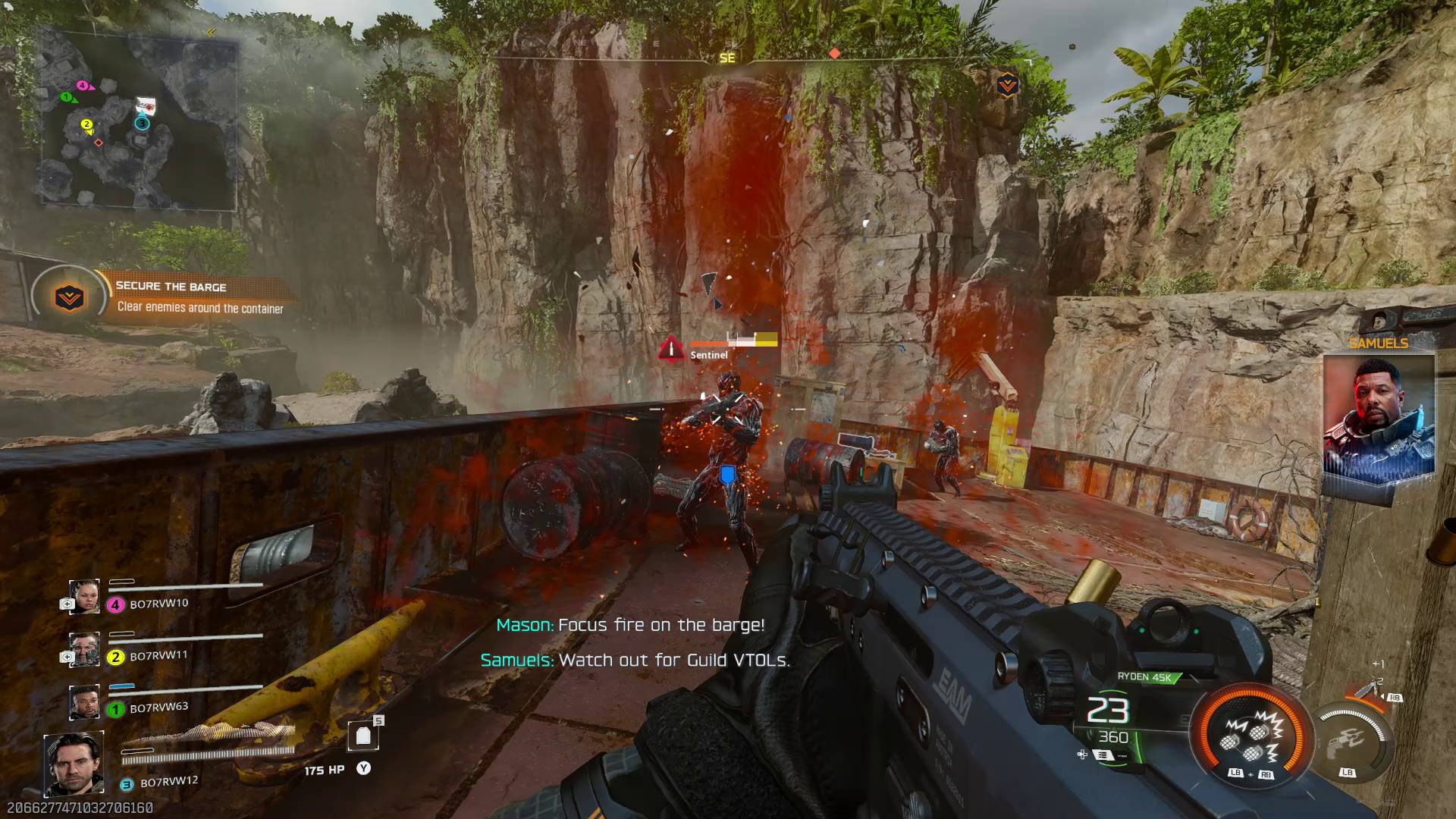
Even though the story is weak, I can't deny that the developers at Treyarch and Raven had a clear vision of what they wanted Black Ops 7's co-op campaign to be and went all out, getting unexpectedly weird with its psychological premise. It's just that that vision is too bizarre and completely incongruous with player expectations.
The campaign is, at least, very linear, but levels alternate between typical Call of Duty set piece missions and monotonous objective scrambles in large chunks of the huge Avalon maps (which was a huge letdown in our Call of Duty: Modern Warfare 3 review too). However, in the case of Black Ops 7, these set pieces are twisted memory hallucinations that manifest as a result of Specter One's exposure to Cradle, the Guild's experimental fear gas key to their global takeover.
My mind felt quite unbent by the end.
Set in various locations from Black Ops history, these missions are certainly engaging, packing action and visuals that range from genuinely interesting to downright baffling – giant machetes falling from the sky, grotesque plant monsters in a hellish Angolan swamp, physics-breaking Los Angeles highways, and, of course, monstrous Michael Rooker pummelling an aircraft carrier. These levels are undoubtedly odd, often feeling like a nostalgic Black Ops 2 highlight reel gone wrong (though they do result in some unintentionally hilarious objectives like "End The Nightmare" and "Preserve The Memories") but I'm more offput by the whole co-op campaign's uninspired game design than the visual weirdness of these levels.
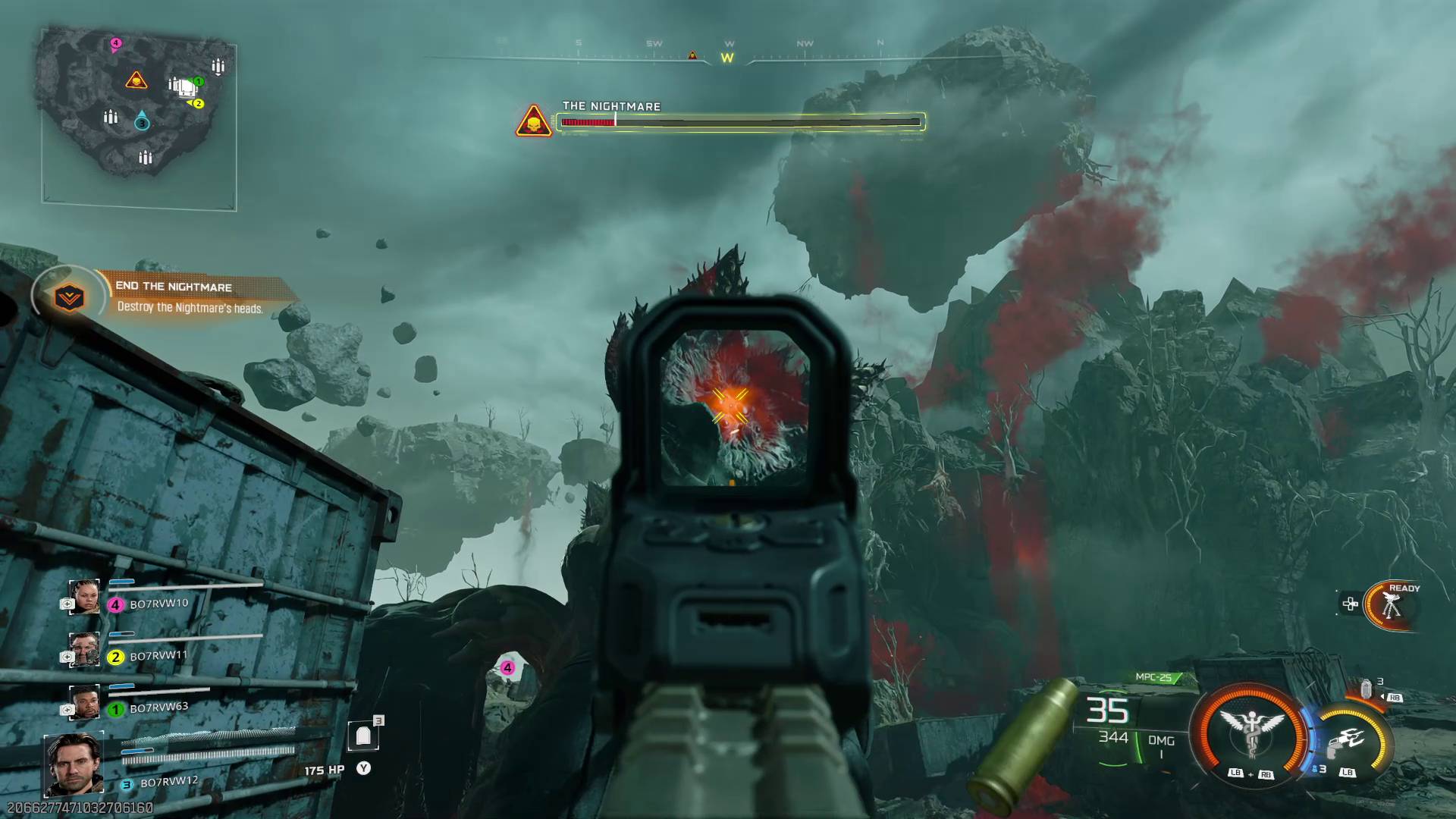
Every Avalon enemy, from the scrubbiest of Guild soldiers to the most durable drones, has a visible health bar, which results in human enemies that can be holier than Swiss cheese before they kick the bucket. Hallucinations and areas of high Cradle concentration see you fighting nightmarish, angry-red forms of these Guild soldiers as well as hideous spider creatures, acid-spitting flies, and manifestations of fear itself, which are just redressed zombies from Zombies mode. Mix in stat-boosting level ups and, by the end, Spectre One is essentially the JSOC Avengers shooting enemies that feel like bullet black holes. It just feels so wrong for a Call of Duty campaign.
Several levels also feature boss fights which are, for the most part, mechanically quite dull and largely unnecessary, feeling more like Destiny 2 Strike bosses with all their immune phases, teleporting, and minions. As an example, one mission in Avalon sees Spectre One under fire from an elite Guild sniper who teleports around several rooftops and repeats the same few quips ("Heads Up!", "Gotcha!") while trying to blow your head off, like a game of whack-a-mole if the mole had a Barrett 50 Cal. My co-op team quickly figured out that simply spreading out across the rooftops then shooting her in the face with a brain-melting amount of firepower over and over was the path of least resistance.
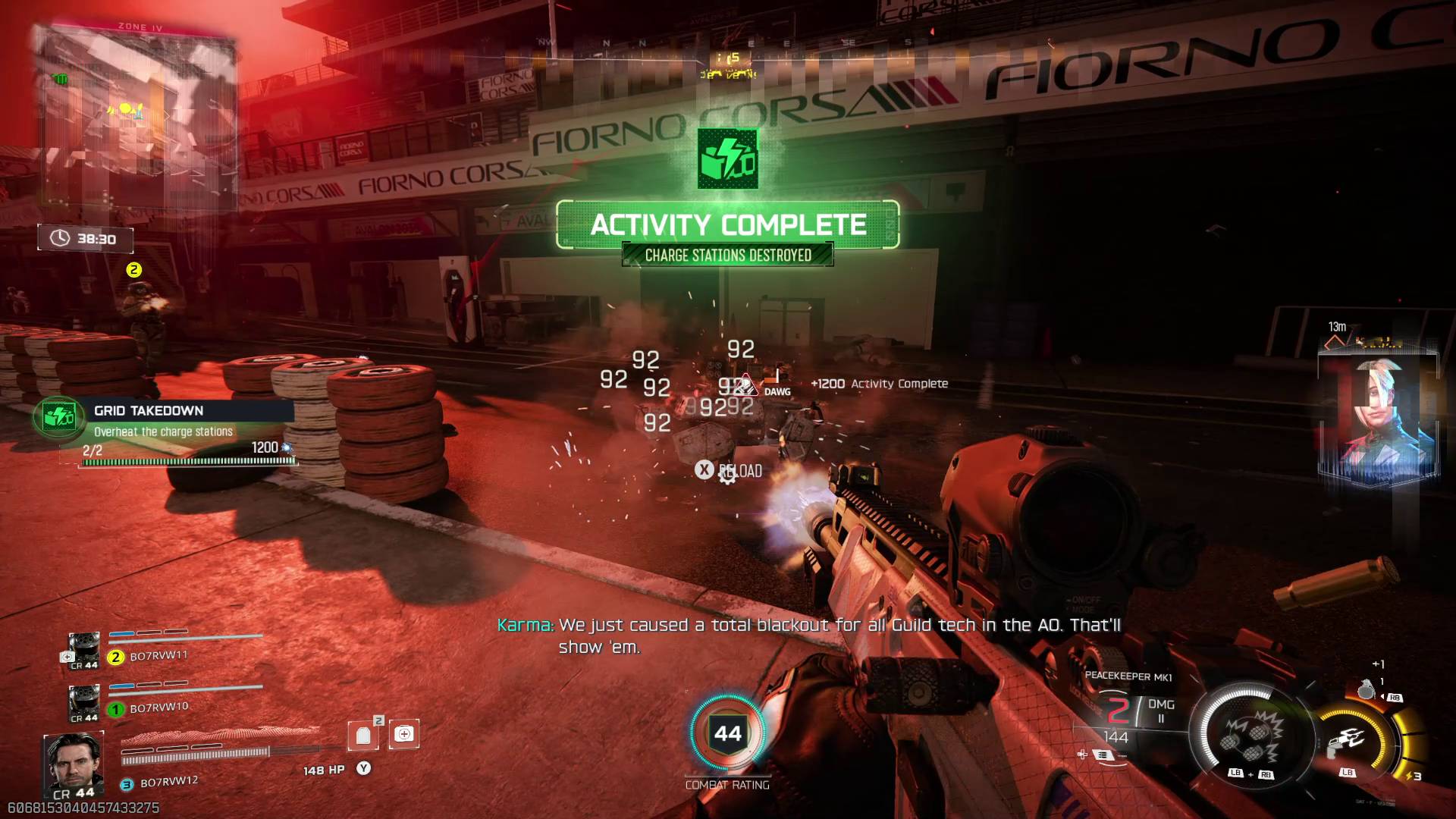
The ultimate showcase of this design approach is the campaign's true final mission, Endgame. It's effectively a replayable PvE-only extraction mode set on the entire unremarkable Avalon map, filled with all sorts of random objectives and events to complete. Broadly, it's just a mashup of almost everything you've seen already in the campaign, now with a new progression and upgrade system slapped on and a more open sandbox. It's perfectly fine for some casual NPC blasting early on but the intensity and difficulty of Endgame's endgame reduce the mode to an unrewarding slog, making for a largely inoffensive but also not especially thrilling mode.
Cutting about Avalon and battling the Guild and shambling nightmares with a squad at least makes most of the shortcomings of the campaign and Endgame more tolerable. But it's clear that the more experimental aspects of Black Ops 7's campaign miss more than they hit. I respect Treyarch's attempt to go bonkers and make the weirdest Call of Duty setting possible, but this is a definite misfire.
Many chambers
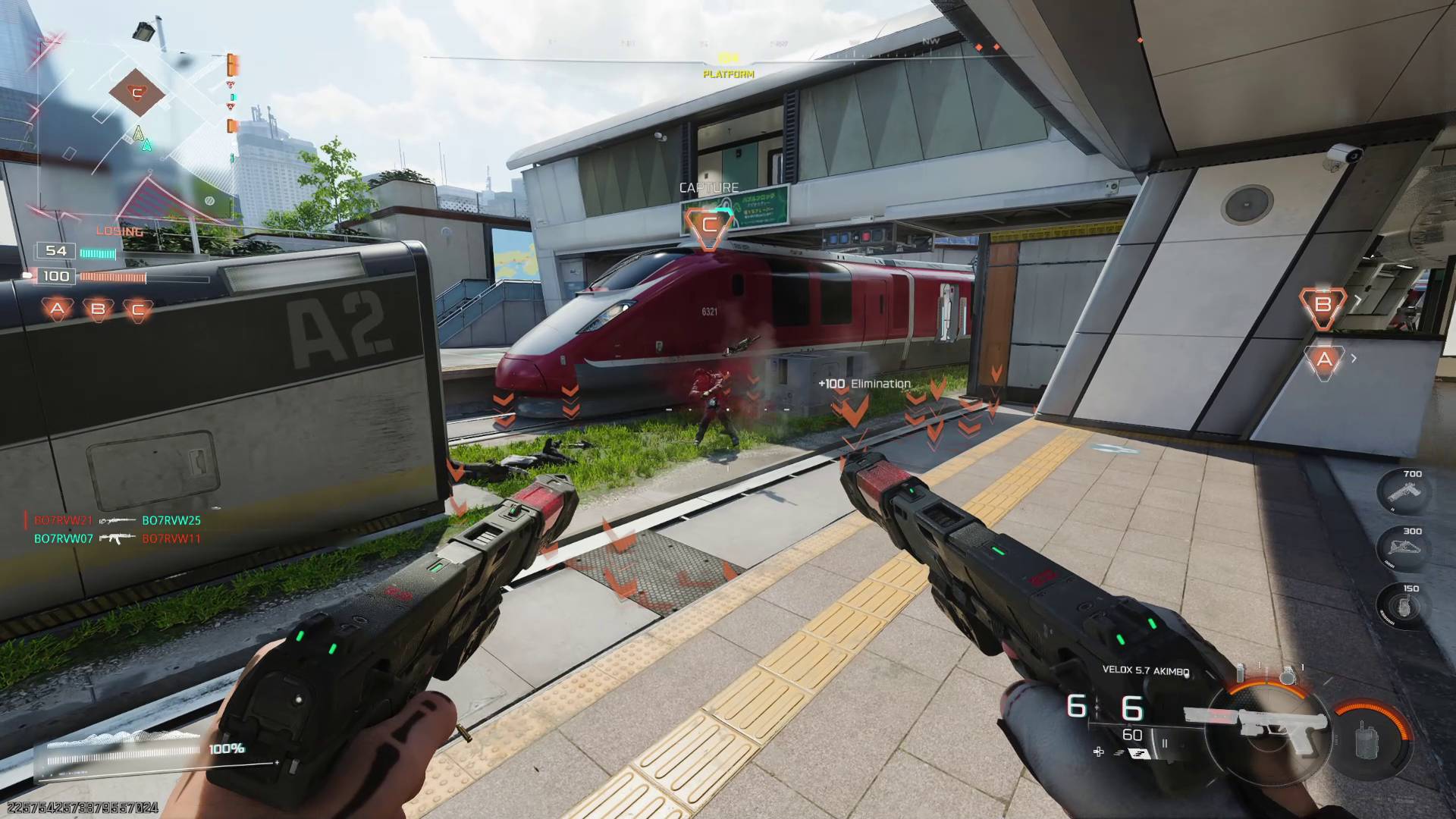
The custom loadout system is loaded with depth, but also right on the edge of overcomplication.
While Call of Duty: Black Ops 7's campaign and Endgame mode don't hit their marks, the rest of this huge game is much more bearable. Multiplayer is, unsurprisingly, very well-refined, as you'd expect from developers that have been iterating on industry-leading online competitive play for nearly 20 years at this point.
Going into my first match, I was concerned that the addition of wall-jumping would be a big shakeup that goes against the general desire felt across mainstream FPSs for grounded gameplay, but that isn't the case. Instead, wall-jumping fits in nicely with the existing improved Omnimovement mechanics, allowing for enhanced map traversal without feeling difficult to pull off.
Elsewhere, custom loadouts have a couple of new options to bear in mind, helping you customize your class to a ridiculous degree. The most notable additions are Overclocks – unlockable upgrades for tactical and lethal equipment, Field Upgrades, and Scorestreaks – that add improvements and sometimes alter how they function – and the hybrid perk specializations that build on Black Ops 6's perk specializations system. Add these to the existing gunsmith options and Wildcards and you've got a custom loadout system that is loaded with depth but also right on the edge of overcomplication.
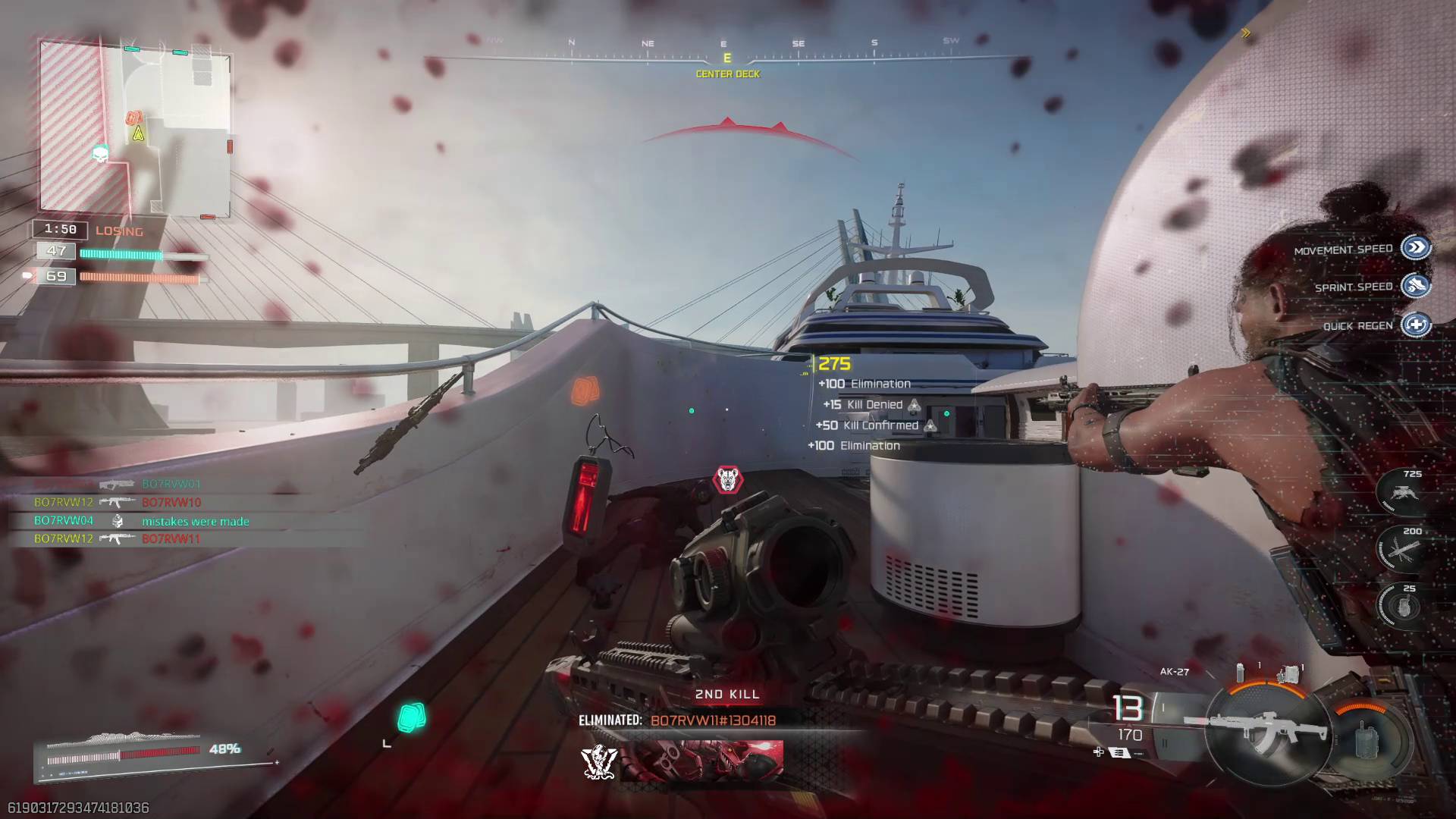
Overall, combat feels slick and fast-paced without being absolute carnage and impossible to follow, but it can't escape the feeling that this is a reheated version of last year's multiplayer with only a few revisions. Still, its 16 launch maps lean on Treyarch's standard three-lane layout, which continues to prove a winning formula. Revamped versions of Black Ops 2 classics, meanwhile – like Raid, Express, and the still-excellent Hijacked – are great anchors that effectively help Black Ops 7 feel like it's celebrating a real FPS legacy, maybe ever more so than the campaign.
It's just a shame that legacy is also tarnished by a slew of calling cards and other player card cosmetics that have been at least partially created with generative AI tools. I can't help but feel like this cheapens the ladder of reward unlocks significantly, especially since it was also previously undisclosed on Steam. Like the haphazard campaign, there's no escaping the sense that much less care has been taken over some areas of this multi-mode release than others, and it leaves a sour taste in the mouth.
While there are plenty of the usual suspects when it comes to modes (Team Deathmatch, Domination, Kill Confirmed, and plenty more), there is a new capture the flag-style mode called Overload which can be a lot of fun and highly competitive. There's also the larger 20 versus 20 Skirmish mode, which I don't get on with this as well as regular multiplayer, the spaces feeling too large and empty for a moveset that otherwise champions mastery over denser spaces – for me, larger-scale warfare is best left to Battlefield.
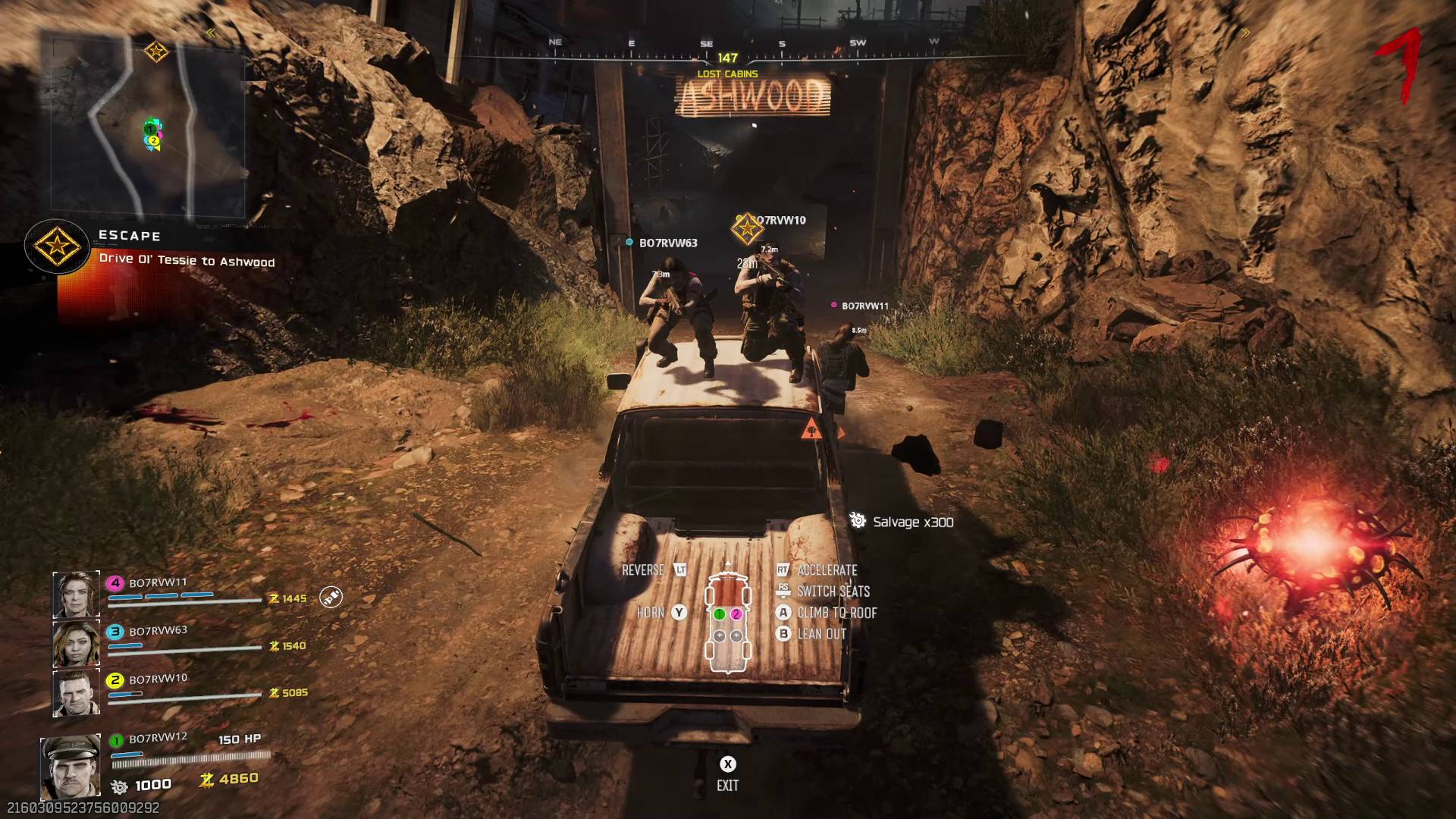
Zombies is similarly refined, with Ashes of the Damned, acting as a great opening statement for Black Ops 7's take on the eccentric horde mode (with loads of updates for this mode specifically in the works). Mechanically, it's like a souped-up version of Black Ops 2's Tranzit, featuring a massive figure-8 map and an upgradeable truck called Ol' Tessie which you get to drive through the winding roads of the arcane Dark Aether yourself. Increased freedom, control, and scale make this a mode you can seriously get lost in – but this time I mean that only as a sincere compliment. There are also plenty of opportunities for things to go wrong in both hilarious and frustrating ways – as ever, this is a mode best played with pals.
The numbers, Mason, go up
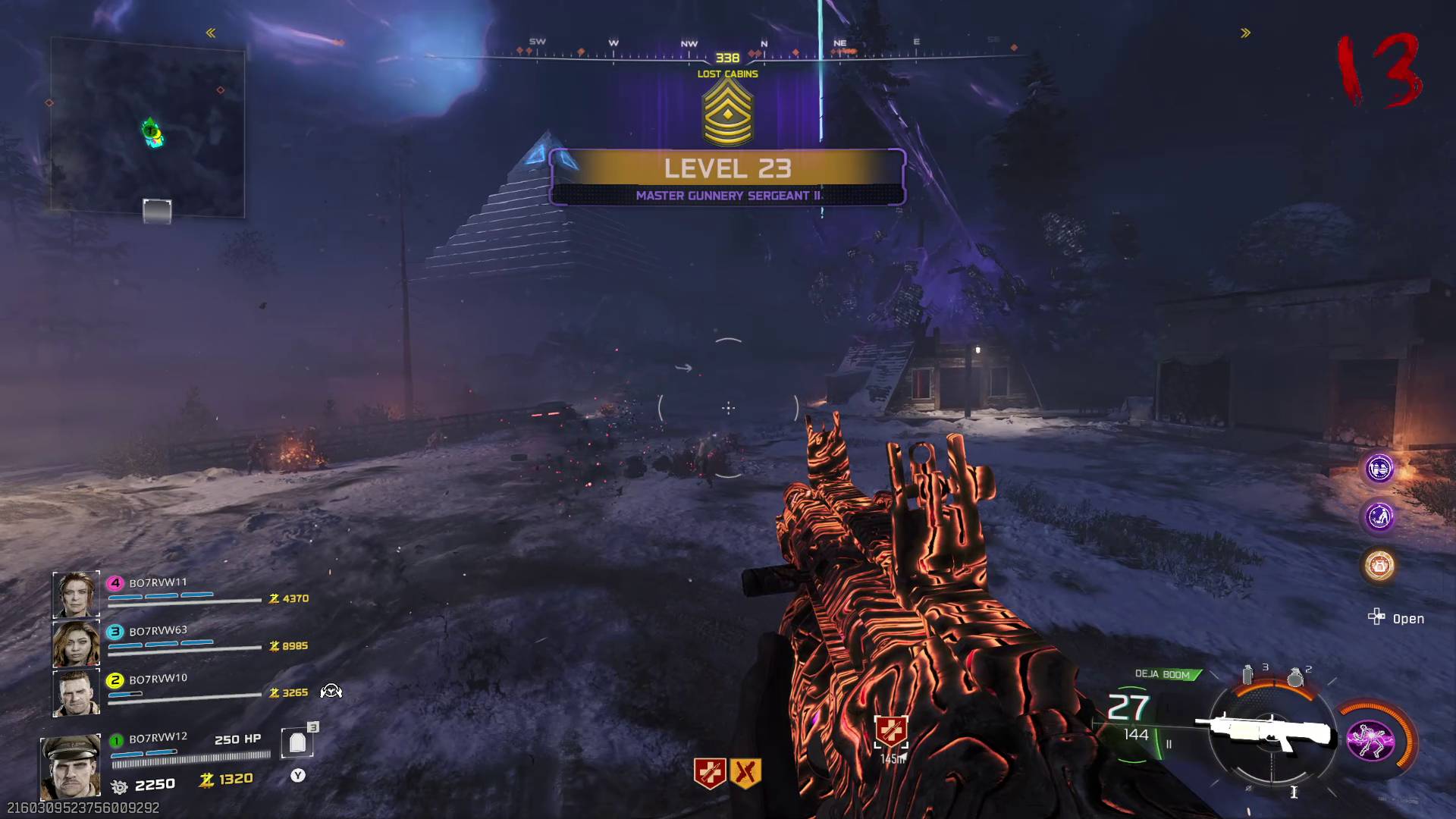
Black Ops 7 is terrified of me losing interest, relentlessly throwing doodads at me rather than providing anything especially unique.
One of Black Ops 7's biggest changes is that it's the first Call of Duty game to have a global progression system. That means you earn career and weapon XP and can complete challenges across the co-op campaign, Endgame, multiplayer, and Zombies. On paper, that sounds excellent, rewarding players no matter what they're playing but, in practice, I find this system has a homogenizing effect on the whole of Black Ops 7 that leaves a bad taste.
Initially, I liked the fact I could level up weapons I wouldn't typically use in multiplayer by taking them into other modes. The MK78 light machine isn't for me in multiplayer but Rambo-ing it in Zombies means I still get to unlock its attachments. But when Warzone-style armor plating and shambling zombie enemies bleed into the campaign and those guitar-shredding "level up", "unlock", and "challenge complete" stabs that I associate most with multiplayer prove practically inescapable, it all starts to seem the same. It feels more like the game is terrified of me losing interest, relentlessly throwing doodads at me rather than providing anything especially unique.
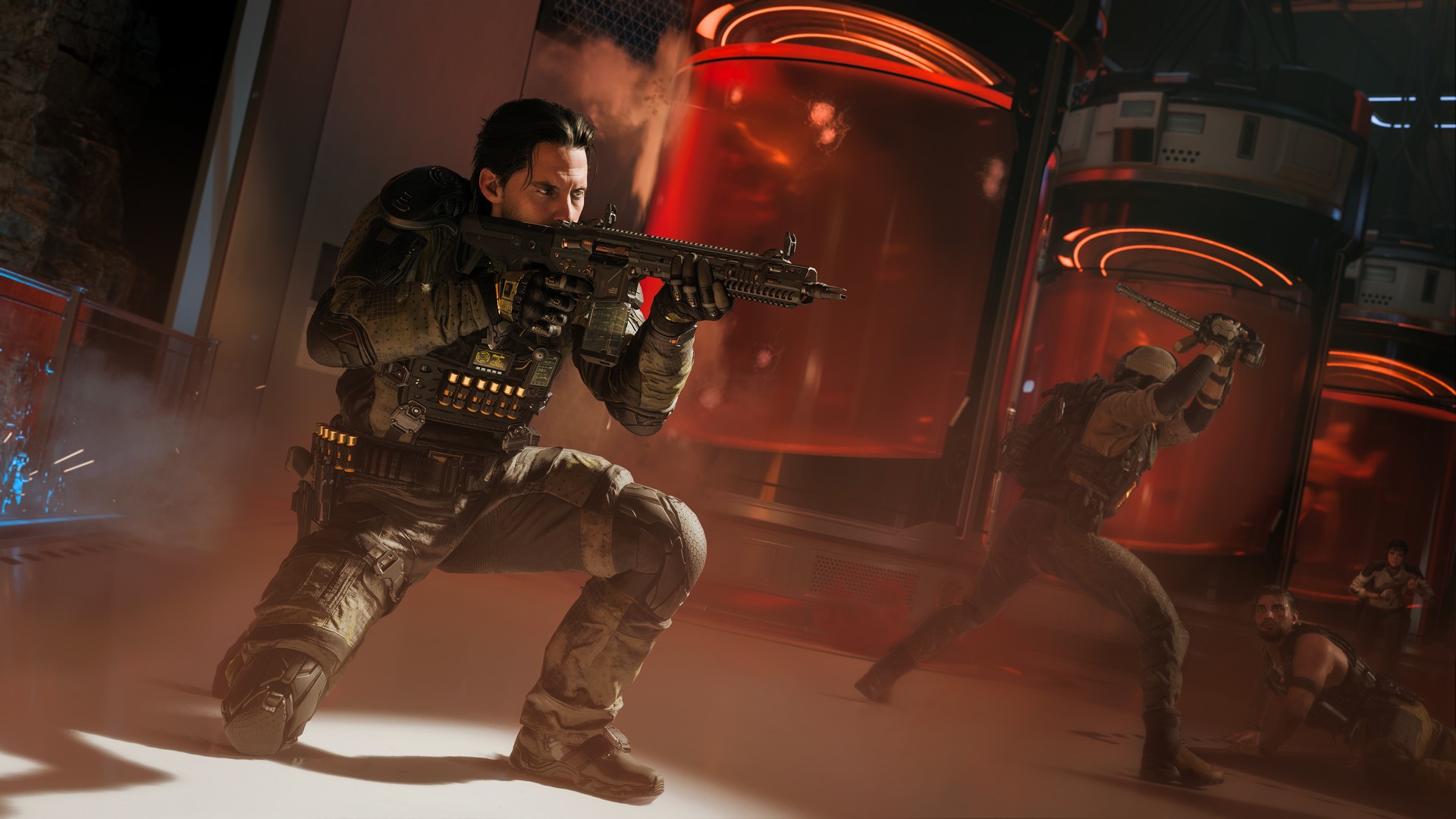
Call of Duty: Black Ops 7 is inarguably the biggest Black Ops game there has ever been, with a huge array of activities and modes that can all be reasonably enjoyed with friends but rarely solo. Pair that with its bizarre campaign and Black Ops 7 is also the wackiest Call of Duty out there that is, unfortunately, more a triumph of quantity over quality.
I respect the developers at Treyarch, Raven, and the eight other Activision studios that supported for taking this unconventional approach under immense time pressure, trying to keep things fresh, but there are many design choices that I can't fully get behind. While pushing the boundaries of what a Call of Duty game can be is an exciting idea, there are perhaps some aspects that should stick to a safer approach. Bigger, after all, doesn't always mean better.
Call of Duty: Black Ops 7 was reviewed on PS5, with some additional testing on PC, with code provided by the publisher.
Check out our best Call of Duty games ranking for more!
